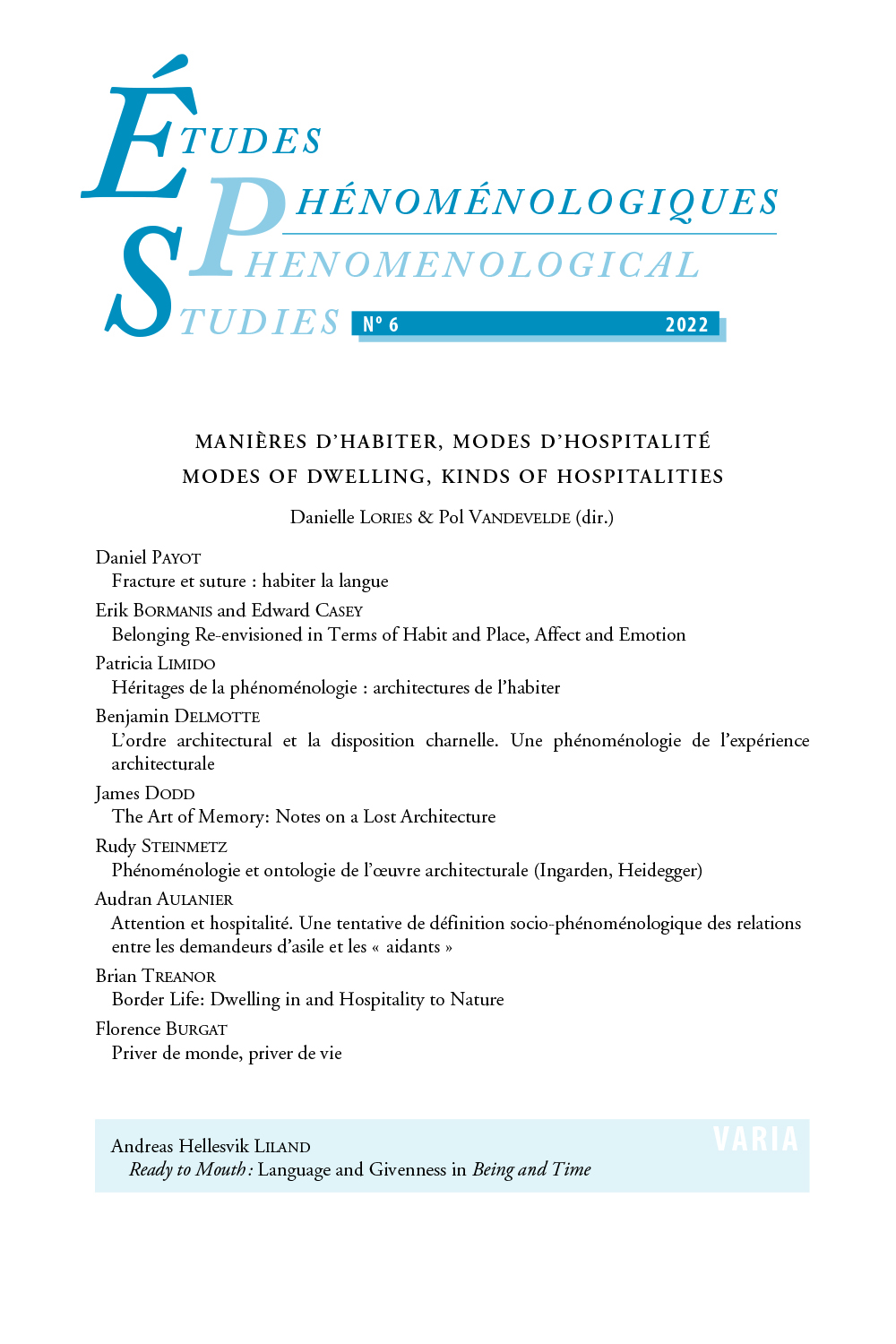 previous article in this issue previous article in this issue | next article in this issue  |

Preview first page |
Document Details : Title: L'éthique de Levinas et la phénoménologie du temps Author(s): FERON, Étienne Journal: Etudes phénoménologiques - Phenomenological Studies Volume: 7 Date: 2023 Pages: 75-99 DOI: 10.2143/EPH.7.0.3291055 Abstract : Levinas’s ethics – which centers around the idea of responsibility 'towards others' (substitution) as the sole true relationship with the Other, as the only access to metaphysical transcendence – from the start faces the problem of social justice, which is not explicitly treated. Levinas tries to recover justice by means of a 'third party' as well as through an unjustified recourse either to the idea of the infinite or to the idea of the Good beyond Being. In the present article, we suggest an alternative to this notion through the question of time. Levinas compresses the present into a moment between the past, where all responsibilities lie, and the future, towards which justice leans. Only the present does initiate a phenomenology of time which – through Reduction – suspends the simple flux of experience so that – in the process – the very presence of the present – which is the essence of time – will stand out. This presence is not to be mistaken for the type of responsibility where the other takes precedence upon me, nor is it to be confused with justice where the other would be just one among many. The presence of the present lies in the significance of time, which brings together the sense of transcendence – differently or 'autrement' rather than Beyond-being – and the phenomenological significations of human reality. The significance of time is transcendental, universal, but also very concrete – a concrete universal-. Both these concrete and universal qualities are at play in a phenomenological ethics of proximity. |
|


